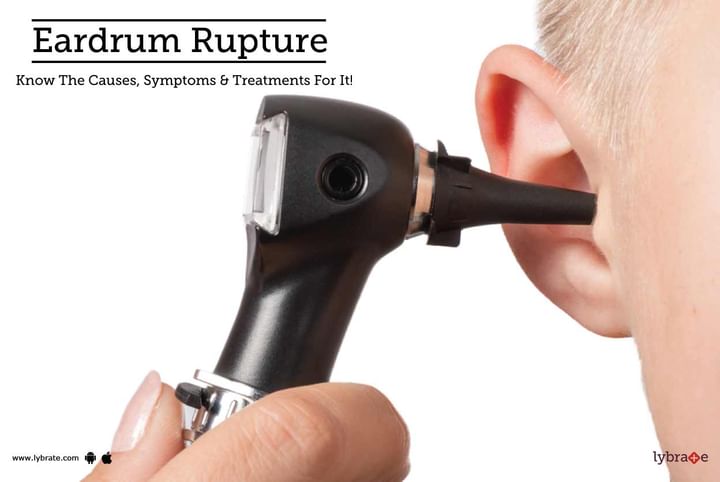Eardrum Rupture - Know The Causes, Symptoms & Treatments For It!
An eardrum rupture or perforation is a little gap or tear in your eardrum and the tympanic membrane. The tympanic membrane is a thin tissue that partitions the canal of the middle ear and outer ear. This layer vibrates when sound waves enter your ear. The vibration proceeds through the bones of the center ear. Since this vibration allows you to listen, your hearing can be affected if your eardrum is harmed. A ruptured eardrum is additionally called a perforated eardrum. Permanent hearing loss could be an end result in some cases.
A ruptured eardrum, similar to thunder; can happen all of a sudden. You may feel a sharp pain in your ear, or an ear infection that you've had for some time all of a sudden leaves. In some cases, the person may not feel any signs of the rupture.
Some of the causes for such a perforation are:
- Infection: Ear infections are a major reason for eardrum rupture, particularly in children. Liquids tend to deposit behind the eardrum in such cases.
- Exercises: Exercising can bring about pressure changes in the ear and lead to a punctured eardrum. This is known as barotrauma, and takes place when the pressure outside the ear is not the same as the pressure inside the ear. Activities that can bring about barotrauma include scuba diving or flying on plane.
- Other activities: Wounds can likewise burst your eardrum. Any injury to the ear or side of the head can bring about a crack.
Diagnosis: Your specialist can use a few approaches to find out whether you have a ruptured eardrum:
- A liquid test in which your specialist tests liquids that might spill from your ear from infection.
- An otoscope exam in which a specific gadget with a light is used to investigate your ear channel
- An audiology exam, in which your specialist tests your listening to range and eardrum limit
- Tympanometry, in which your specialist uses a tympanometer to test the pressure changes in your ear.
Treatment: The treatments are as follows:
- Patching: In the event that your ear does not recuperate by itself, your specialist may fix the eardrum. Fixing includes setting a sedated paper patch over the tear in the film.
- Antibiotics: Anti-toxins can clear up contaminations that may have prompted your eardrum break. They additionally shield you from growing new diseases from the aperture. Your specialist may endorse oral antibiotics or eardrops.
- Surgery: In uncommon cases, surgery might be required to fix the gap in the eardrum. A surgical repair of a punctured eardrum is called tympanoplasty.
A cracked eardrum generally recuperates without any invasive measures. Many patients with cracked eardrums encounter just transitory listening problems.



+1.svg)
